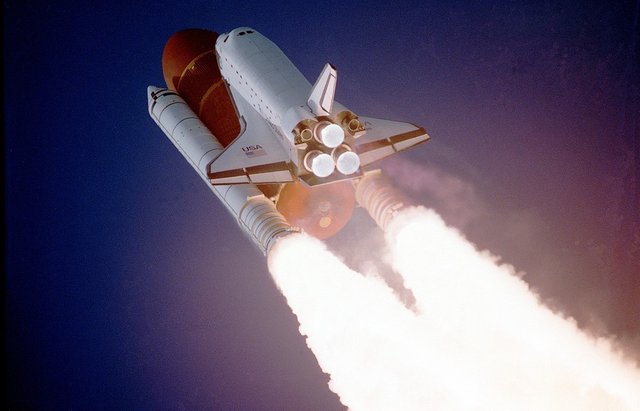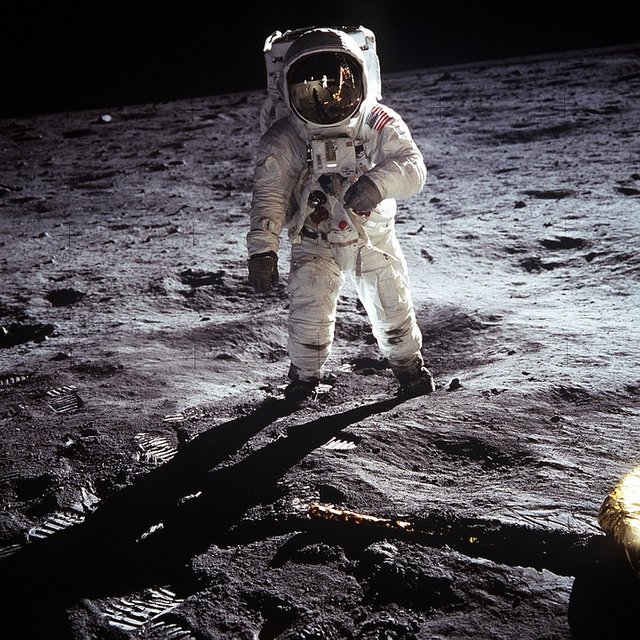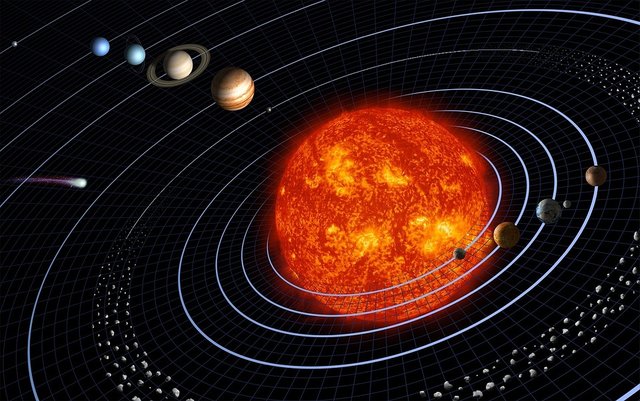Race to Moon
Space, that last boondocks, is something that grabs the eye of a nation normally slanted to have confidence in thoughts like "Show Destiny" and American exceptionalism. Be that as it may, how well does a Space Force fit that bill? Furthermore, would a Space Force reignite a military space race and fuel conciliatory pressures with China and Russia? Experiencing childhood in Florida, I was sufficiently fortunate to watch space carry dispatches with something that took after normality. As I got more seasoned and first found out about the historical backdrop of NASA, its adventures amid the

Space Race and after that its difficulties, I never lost the feeling of stand amazed at what NASA could do. I likewise picked up a gratefulness for the troubles it needed to defeat with the end goal to achieve those accomplishments. I've transformed this enthusiasm into a scholastic vocation considering the legislative issues of room, science and solution. NASA's impact is unmistakably found in these different fields and also in our regular daily existences. Advances created to permit space investigation have prompted such shopper developments as scratch-safe focal points and CAT examines. Our cellphones would not be conceivable without the scaling down of chips amid the Apollo program or military GPS satellites. Given these advantages, we regularly overlook the troublesome idea of spaceflight and the assets required to achieve it. For sure, looking at the encounters and political exercises of NASA uncovers the challenges of setting up another administration office and propelling an association whose activity is to do hard things at a staggering expense. Taking a gander at the good and bad times of NASA's history demonstrates to us that there are potential advantages locally however that they could accompany more noteworthy worldwide hazard. What is a Space Force, and what might it do in any case? While at a rally in March this year, President Donald Trump initially specified the possibility of a Space Force. From that point forward, the president has both tweeted about the thought and guided the Pentagon to build up an arrangement to make an autonomous 6th part of the military. Reacting to the president's orders, the Pentagon discharged a report in August. In spite of the fact that the report was named as "conclusive," its 15 pages are short on detail, long on arguments, and light on subtle elements on why there should be a Space Force. The White House and Congress have been thinking about the thought for quite a while. Amid the discussion over the 2017 National Defense Authorization Act, individuals from the House Armed Services Committee embedded an arrangement building up a "Space Corps." The proposed Space Corps was to be housed inside the Air Force however the arrangement was later expelled amid House-Senate transactions on account of protests from both the White House and Secretary of Defense James Mattis. Despite the fact that he has communicated bolster for a Space Force now, Mattis initially restricted it over budgetary and overhead concerns. The emphasis on space was likewise clear in the National Security Strategy discharged in December 2017 and the National Space Strategy discharged in March. Past tweets and notices, the White House has not, as I would like to think, put forth a convincing defense for why such a power is required. The Pentagon report, which apparently establishes its framework, expresses that "potential enemies are presently effectively creating approaches to preclude our utilization from securing space in an emergency. It is basic that the United States adjusts its arrangements, convention and abilities to secure our interests." The military foundations of room investigation and NASA's initial exercises To state that military and space are interlaced is putting it mildly. Satellites give regular citizen interchanges yet additionally do likewise for military units. Space experts call this "double utilize" and it is additionally what makes it so hard to isolate quiet, regular citizen exercises from military ones. New York City respects the Apollo 11 team in a ticker tape march down Broadway and Park Avenue. Envisioned in the number one spot auto, from the right, are space travelers Neil A. Armstrong, Michael Collins and Buzz Aldrin. The three space travelers joined for the main kept an eye on lunar arriving, on July 20, 1969. Credit: NASA The military and regular citizen underlying foundations of room investigation are bound up firmly with each other. At the point when the Soviet Union propelled Sputnik in October of 1957, it set off a frenzy in the United States about the capacity not of the Soviets to investigate space, but rather about their capacity to dispatch dangerous assaults on Americans. Subsequently, the Space Race was conceived not out of a craving to calmly investigate space, however Cold War governmental issues. President Dwight Eisenhower, watchful not to peruse excessively into the Soviet capacities, was mindful in reacting to the risk. In spite of the fact that Eisenhower at first needed the space exertion to be controlled by the military, he was influenced to make a more open, regular citizen space program to a limited extent to decrease "consideration on U.S. 1 of that year. There are two exercises to be taken from NASA's foundation and early history. To start with, it was an organization conceived of an emergency. The United States was apparently falling behind its Cold War enemy and general society requested that the administration react. Emergency frequently goes before the foundation of new government organizations and furnishes those offices with a base of open and political help. As far as a Space Force, there is no evident emergency. We realize that both Russia and China have been creating military capacities in space. China previously tried an enemy of satellite weapon in 2007 and all the more as of late, Russian satellites have been exhibiting new capacities. There are in all probability other military exercises in these states, and maybe others, they have attempted that stay characterized. If so, at that point I trust the organization needs to establish a more grounded framework for why a Space Force is required on the grounds that coming up short on an emergency, bolster is regularly difficult to find. A second, and related, exercise is as far as open help. In spite of the fact that Americans have a tendency to recall the space projects of the 1960s positively, open help for NASA started to fall in the mid 1960s and as Roger Launius, a NASA student of history, composes, the information "don't bolster a dispute that a great many people endorsed of Apollo and thought it imperative to objective of finding a man on the moon before the decade's over. Investigations of popular conclusion frequently show a "thermostatic" connection between general feeling and financing. For the Space Force, general feeling is topsy turvy. In ongoing surveys, CNN found that 55 percent of Americans don't bolster the foundation of a Space Force while Rasmussen (regularly a Republican-inclining survey) found that 40 percent of

Americans are restricted, while 27 percent were uncertain. In the event that help and financing go as an inseparable unit, these discoveries don't put the Space Force on an economical balance. Results of a Space Force for NASA and militarization of room Should the Trump organization prevail with regards to building up a Space Force or something like it, the move may have genuine ramifications for NASA. Contingent upon its central goal, the Space Force is probably going to require dispatch abilities for satellites and maybe human missions. Despite the fact that a Space Force might have the capacity to buy these administrations from organizations like SpaceX, on the off chance that they build up an in-house dispatch framework, they may copy effectively existing NASA endeavors. Doing as such would likewise likely reason a mind deplete at NASA as in-house architects and specialists relocated to the Space Force with guarantees of new missions and new financing. There is likewise an issue of whether the Space Force may just assume control current NASA missions. In the wake of the Space Force declaration, the Trump battle conveyed an email to supporters requesting that they vote on a potential logo. In spite of the fact that this was a gathering pledges move, one of the "logos" was themed around Mars with the wording "Mars Awaits." Given that the general mission of the Space Force stays hazy, there could be a push for human spaceflight endeavors to be subsumed under a Space Force. NASA's ongoing disappointments in the improvement of the Space Launch System, or SLS, and the James Webb Space Telescope just further strengthen the picture of a NASA spread too thin to achieve significant space tries. At last, NASA's financial plan is as of now very low thinking about its central goal: US$19.7 billion out of 2017 with $19 billion asked for 2018. This speaks to under 0.5 percent of the general government spending plan. A Space Force could attainably take away financing from NASA, particularly for the advancement of human spaceflight abilities along these lines tearing up NASA's as of now low spending plan. As far as geopolitics, building up a Space Force could make a point of no arrival in of militarization of room. From Eisenhower onwards, U.S. policymakers have kept away from the presence of obvious military impact in space. Both the United States and the Soviet Union joined the 1967 Outer Space Treaty, which stipulated, in addition to other things, the tranquil utilization of space and a prohibition on atomic weapons. Following the Space Force declaration, Russian authorities cautioned about potential infringement of the bargain and that Russia may pull back from the settlement if the U.S. did. Joan Johnson-Freese, a space strategy master, cautions in her ongoing book that the pace of American militarization of room has been expanding, maybe to the final turning point.

Her notice is that policymakers consider additionally activities before venturing into a weapons contest for which nobody is readied. While President Trump has positively shaken up America's relations with different nations, such an uncommon change in American stance could have huge and irreversible impacts, making a second space race.
Thanks for using eSteem!
Your post has been voted as a part of eSteem encouragement program. Keep up the good work! Install Android, iOS Mobile app or Windows, Mac, Linux Surfer app, if you haven't already!
Learn more: https://esteem.app
Join our discord: https://discord.gg/8eHupPq